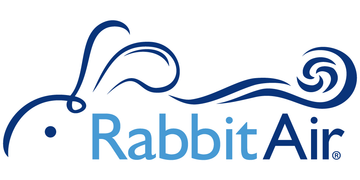What is an Air Purifier?
If you break down the words “air” “purifier,” you essentially come to the realization that an air purifier purifies the air. But how does that work? Is it through the miracles of science? Is it magic? The answer is much simpler than you think.
Air purifiers purify the air by trapping airborne contaminants. Dust, mold spores, dust mites, chemicals, odors, and toxins are a few airborne contaminants that an air purifier can trap, but depending on the specific technology that an air purifier uses, certain air purifiers are more adept and safer at trapping particles.
Types of Air Purifiers
- HEPA Air Purifiers: True HEPA filters will trap 99.97% of airborne particles up to .03 microns. Also, due to the technology used in HEPA filters, airborne bacteria and viruses will not multiply in the filters and spread. Beware of air purifiers that claim to have a true HEPA filter, but instead have a HEPA-blend filter.
- Ozone Generators: Although effective at trapping odors, ozone generators release high levels of ozone, a respiratory irritant. Many hotels will use an ozone generator in smoke allowing rooms to trap smoke odors, but due to the high levels of ozone, many rooms cannot be entered until 24 hours have passed.
- Electrostatic Precipitators: By charging incoming particles with negative electrical charges, these negatively charged particles collect onto electrostatic plates. Maintenance is very high as the metal plates can become overrun with particles. Also, with ozone as a by-product, this once popular filtration choice has all but disappeared in homes.
- Ultraviolet Light Air Purifiers: By using radiation from UV lights, particles, such as bacteria, viruses and mold spores that pass through the light are killed. Unlike filters and plates, that collect particles as they pass through, the purpose of ultraviolet light is to penetrate the outer structure of a microorganism’s cell and alter its DNA, permanently preventing replication and causing cell death.
- Activated Carbon: A highly porous form of carbon that it heated to extreme temperatures to increase the surface area. One activated carbon has the surface area of 500 m2. Although it will not trap particulates, activated carbon is very effective at trapping chemicals, odors, VOCs and off-gassing.
What Else is Important in Choosing an Air Purifier?
While choosing your air purifier, other technical aspects that should catch your eyes are CFM, noise level, and CADR.
- CFM: True HEPA filters will trap 99.97% of airborne particles up to .03 microns. Also, due to the technology used in HEPA filters, airborne bacteria and viruses will not multiply in the filters and spread. Beware of air purifiers that claim to have a true HEPA filter, but instead have a HEPA-blend filter.
- Noise Level: Although effective at trapping odors, ozone generators release high levels of ozone, a respiratory irritant. Many hotels will use an ozone generator in smoke allowing rooms to trap smoke odors, but due to the high levels of ozone, many rooms cannot be entered until 24 hours have passed.
- CADR, or Clean Air Delivery Rate: By charging incoming particles with negative electrical charges, these negatively charged particles collect onto electrostatic plates. Maintenance is very high as the metal plates can become overrun with particles. Also, with ozone as a by-product, this once popular filtration choice has all but disappeared in homes.
Other categories to consider are energy consumption, life span of the filters, cost of replacement filters, and ozone emission. Is operating your air purifier going to cost you a bag of money? Do you need to replace your filters three times a year? Are replacement filters costing you more money than your air purifier is worth in 1 year? The more informed you are of your air purifier choices, the more informed choice you will make.
Choose the Rabbit Air purifier that is best for you. If you need help selecting a model that suits your needs, please call our toll free number: 888.866.8862.
Source:
http://en.wikipedia.org/wiki/Air_purifier
http://www.ehow.com/way_5691096_do-air-purifiers-allergies_.html
https://www.freedrinkingwater.com/general-health/air/uv-purifier-guide.php
Is an Air Purifier Worth it?
What is the Best Location for an Air Purifier?
